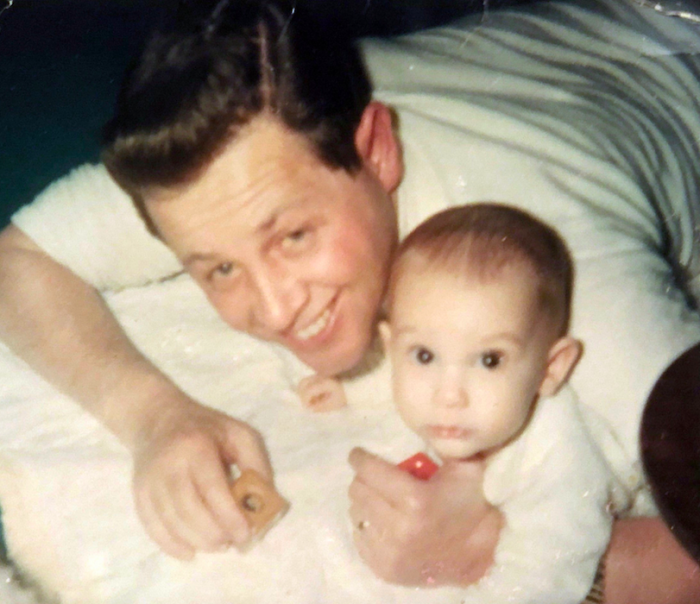His cancer was supposed to be slow-moving, but it didn’t turn out that way.
I sat at the edge of his bed, holding his hand. This was the last time I would see him.
He chose to spend his final days at home. I looked around his room knowing it would never feel the same again. As I kissed him on the cheek and told him I loved him, my eyes welled up with tears. I knew it was time to let him go.
Hours later, he died. And the grieving began.
For many of us, the death of a parent is a new experience. There are so many emotions to process in a short time, especially if we are unprepared for their death.
We may have thought we had more time, but end of life is unpredictable. For a while, my dad seemed to be doing better, but he deteriorated rapidly. There was so much I had wanted to say to him, but I always put it off. In the end, as he lay dying unable to hear me, I had too much to say, but I had run out of time.
Losing a parent is unlike any other experience. We have no idea how we will react, and we might not be prepared for our own emotions. I felt detached in the days before my father died. After his death, it was surprisingly different, alternating between detachment and fits of sobbing—I wondered if this was a normal way to cope.
When we lose a parent, we may feel regret over unresolved arguments and disagreements. Not seeing eye to eye, we may have said things we didn’t mean, and now we can’t take them back. It’s natural to feel regret over this lack of closure.
The grieving process can take a heavy toll on us both mentally and physically. This is known as grief fatigue. In the days after my dad’s funeral, I misplaced things like keys and notes, and I frequently forgot why I walked into a room.
Grieving takes time. Every day is different, and we experience a range of emotions. With patience and compassion toward ourselves, we can move through the grieving process and eventually accept the loss of a parent.
Here are four things I learned about grieving after my dad died:
1. Despite our best efforts, we may be totally unprepared for the death of a parent. This is especially true if it is the first time we are losing someone. People who have been through it will try to help and offer advice, but it feels like a foreign language. We have no context for this kind of loss. Our lives change dramatically in an instant, and it’s a lot to deal with. It takes time to sort through our emotions and process them all.
For me, it meant feeling detached before my father’s death. I wasn’t sure how I would feel, but I didn’t expect to feel numb. No one had mentioned that one. Having been through it, that’s just how I needed to be to cope with what was happening.
The only way to prepare is to accept that there is no “normal” way to be, and to allow ourselves to feel whatever comes up.
2. There will be a void left behind that we cannot fill. When my dad died, I felt a huge empty space in my heart. He wasn’t there anymore. No phone calls or conversations about football or my son. No more wondering what he was up to and how he was feeling. Just a big fat void.
That’s what happens when a parent dies. It’s painful and uncomfortable. Numbing the pain or trying to fill the void with other emotions doesn’t help, it only prolongs the process.
We can allow ourselves to sit with this empty space and embrace it. Allow ourselves to feel and experience the sadness and grief. A parent can never be replaced. We can acknowledge the void they left behind, but we don’t have to fill it.
3. There may be regrets, and that’s okay. Some people don’t have regrets when a parent dies. Others aren’t as fortunate. Maybe we wanted to visit a few more times, or have a few more conversations.
It was important to me to talk to my dad about what he meant to me. I wanted to tell him I was okay—that he didn’t have to worry about me as he died. But I never got around to it. Life doesn’t always go the way we want.
Regrets are more about the ones left behind than those departed. They can eat us up if we don’t come to terms with them. But we can forgive ourselves for not being perfect. We did the best we could.
4. There is no right way to grieve. Some of us may need solitude. Others may need to be around people, or even travel to a new place. What’s important is to be aware of what our needs are and take care of ourselves.
I needed to take a few days off from work. I needed some free time to reflect and look after myself. I exercised regularly and ate some comfort food. I visited my friends and talked about my dad. I did whatever could to help myself grieve.
Grieving is a such an individual process. While losing a parent is a shared experience, it’s important to know that we all grieve in different ways, and that’s okay.
“Grief, I’ve learned, is really just love. It’s all the love you want to give, but cannot. All that unspent love gathers up in the corners of your eyes, the lump in your throat, and in that hollow part of your chest. Grief is just love with no place to go.” ~ Jamie Anderson
~







Read 28 comments and reply